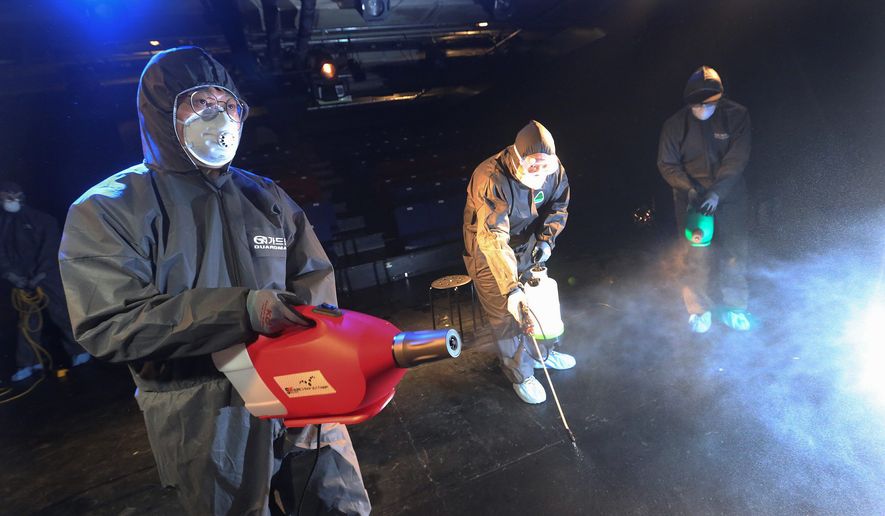SEOUL, SOUTH KOREA — More than two dozen U.S. troops and others working with the American deployment here have been quarantined over concerns they may have been exposed to the deadly Wuhan virus during recent travel in China, a military spokesman said.
The move is just another sign of the fallout the spreading epidemic is having not just in China but in countries around the region.
“We’ve reported 30 total servicemembers, family members and civilians across Army, Air Force and Navy units,” said Army Col. Lee Peters, director of public affairs for the U.S. military here.
Since the outbreak of the coronavirus last month, any U.S. service members who returned from China after Jan. 19 must undergo a mandatory 14-day self-quarantine, Col. Peters said.
Family members of the exposed service members, civilians, contractors and United Nations command military personnel and Korean nationals working for U.S. forces also are strongly encouraged to go along with the at-home quarantine in the interest of public health safety, he said.
“The two-week self-quarantine aligns with 14-day incubation period for the novel coronavirus,” Col. Peters said. “The 14-day quarantine period begins from the date an individual arrives/lands in South Korea from mainland China.”
The quarantine is mandatory for service members but not for family members and civilians.
U.S. Forces Korea (USFK) personnel include soldiers and civilians who are married to Chinese nationals and who were traveling to China to visit relatives during the Lunar New Year or for sightseeing. An estimated 1 million Chinese are said to be living or working in South Korea, and many are located in the capital of Seoul, the country’s largest city with a population of 9.8 million people.
“USFK continues to stress that the overall risk to USFK personnel remains low, but that the quarantine measures implemented are out of an abundance of caution to mitigate risk to the USFK population,” Army Gen. Robert “Abe” Abrams, the U.S. Forces Korea commander said in a statement.
Gen. Abrams urged troops and other personnel to utilize good hygiene practices and to minimize contact with anyone who has returned from mainland China in the past two weeks and who may be showing flu or cold symptoms.
The United States has deployed 23,468 soldiers, sailors, airmen and Marines in South Korea, which remains technically at war with communist North Korea since the Korean War.
In the face of the rapid spread of the coronavirus, South Koreans throughout the country have been urged to don surgical masks and some hotels have instituted temperature checks at entranceways for arriving guests in a search for those who may have fevers. South Korean authorities reported Thursday that the number of cases of Wuhan virus victims is increasing after four more cases were confirmed.
There currently are a total of 23 cases.
One of the those infected was a person who initially tested negative for the illness but who was later found to be infected, Yonhap news agency reported.
Three of the new cases involved person-to-person transmission of the contagious virus.
The discovery of the person infected with the coronavirus who was initially missed by health screening has led the Korea Centers for Disease Control and Prevention to review those screened for the virus who were declared virus-free.
The confirmed cases involved five Chinese nationals in South Korea and nine South Koreans who returned from China. Two others are South Koreans who were infected during a visit to Singapore and one who contracted the disease in Thailand.
Since Jan. 3, a total of 170 people were quarantined for the Wuhan virus, and some 950 people who may have come in contact with those infected are in self-quarantine and being monitored.
• Bill Gertz can be reached at bgertz@washingtontimes.com.




Please read our comment policy before commenting.